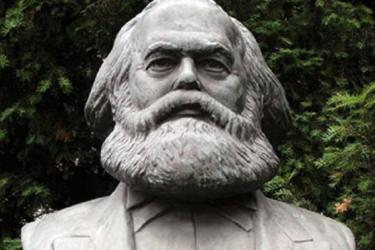Marxist theory
By Nodrada
Here is a mission worthy of a new generation.”
June 26, 2021 — Links International Journal of Socialist Renewal reposted from Orinoco Tribune — While the turn towards analyzing ongoing settler-colonialism has finally reached the mainstream of North American political discussions, there is still a lack of popular understanding of the issues involved. Settler-colonialism is, ironically, understood within the framework of the ways of thinking brought by the European ruling classes to the Americas. By extension, the conceptions of decolonization are similarly limited. Although the transition from analyzing psychological or “discursive” decolonization to analyzing literal, concrete colonization has been extremely important, it requires some clarifications.
By Seiya Morita
March 5, 2021 — Links International Journal of Socialist Renewal — Michael Löwy's article "Leon Trotsky, prophet of the October Revolution" in Imprecor[1], the French-language journal of the Fourth International, is an excellent piece overall. However, I would like to point out that his statement about Russian Marxism includes a couple of misunderstandings.
By Kevin B. Anderson
March 5, 2021 — Links International Journal of Socialist Renewal reposted from MROnline — It is clear today that the emancipation of labour from capitalist alienation and exploitation is a task that still confronts us. Marx’s concept of the worker is not limited to European white males, but includes Irish and Black super-exploited and therefore doubly revolutionary workers, as well as women of all races and nations. But, his research and his concept of revolution go further, incorporating a wide range of agrarian non-capitalist societies of his time, from India to Russia and from Algeria to the Indigenous peoples of the Americas, often emphasising their gender relations. In his last, still partially unpublished writings, he turns his gaze Eastward and Southward. In these regions outside Western Europe, he finds important revolutionary possibilities among peasants and their ancient communistic social structures, even as these are being undermined by their formal subsumption under the rule of capital. In his last published text, he envisions an alliance between these non-working-class strata and the Western European working class.
By Raju J Das
November 20, 2020 — Links International Journal of Socialist Renewal — In a recent interview given to Jacobin, David Harvey (2019) says this about Marxism: “I still don’t know what it means”.It is difficult to exactly know how to understand this cryptic statement from one of the world’s most well-known Marxists. But this is not an unusual view. Many “Marxists” are “shy” to define their Marxism. It is also interesting that while there are numerous academic journals (e.g. Science & Society, Historical Materialism) that claim to be Marxist, they do not explicitly define their Marxism. When they say they are open to all varieties — forms — of Marxism, the question is: forms or varieties of what? There has to be content for it to have many forms. And to the extent that it is possible to know what someone or some entity (e.g. journal or group) means by Marxism, this Marxism often has little to do with the Marxism that was founded by Karl Marx and Friedrich Engels in the 19th century, and continued by Vladimir Lenin, Rosa Luxemburg, Leon Trotsky and their followers in the 20th century.
By Seiya Morita
September 24, 2020 — Links International Journal of Socialist Renewal — "The Roots of Karl Marx's Anti-Colonialism"[1] by Thierry Drapeau in Jacobin examines the influence of the Chartist Leftist Ernest Jones on the development of Marx's anti-colonialist thinking in the 1850s. Drapeau’s analysis is enlightening, but raises some questions.
